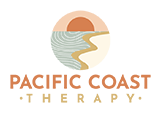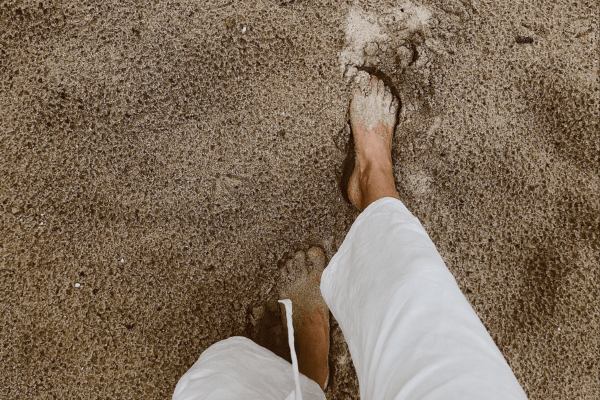Holistic therapy, a healing approach that integrates the mind, body, and spirit, has become increasingly popular among those seeking comprehensive health solutions. This blog delves into the world of holistic therapy with a focus on mind-body practices—how they can significantly benefit fitness enthusiasts, athletes, and anyone interested in incorporating bodily awareness into mental health treatment. We will explore how this integrative approach not only boosts physical performance but also promotes psychological resilience and overall wellness.
The Foundations of Holistic Therapy
Holistic therapy is based on the concept that the mind and body are not separate entities but interconnected aspects of our overall health. This therapy approach addresses various dimensions of health, ensuring that emotional, physical, and mental states are all in balance. By doing so, it supports a more comprehensive healing process, promoting recovery, enhancing performance, and improving quality of life.
Benefits of Mind-Body Therapy in Holistic Practice
- Enhanced Physical Health: Mind-body therapies such as yoga, Tai Chi, and Qigong emphasize physical movement, breathing techniques, and meditation. These practices improve flexibility, strength, and cardiovascular health, all of which are beneficial for anyone engaged in sports or physical activities.
- Improved Mental Focus and Concentration: Athletes and fitness enthusiasts can benefit from the mental clarity and focus that holistic therapies foster. Techniques like mindfulness and meditation enhance one’s ability to concentrate, stay present, and perform under pressure—key components for success in any sport.
- Stress Reduction: Holistic therapy offers effective tools for stress management. Regular practice of mind-body techniques reduces cortisol levels, eases anxiety, and promotes a relaxed state of mind, which is essential for recovery and sustained athletic performance.
- Injury Prevention and Recovery: Integrative practices like yoga and Pilates improve the body’s alignment and posture while increasing core strength. This not only helps prevent injuries by ensuring that the body functions optimally but also aids in the recovery process if an injury occurs.
- Emotional Resilience: Emotional health is crucial in sports and everyday life. Holistic therapy encourages individuals to explore and understand their emotional landscape, enhancing resilience and the ability to cope with challenges.
Mind-Body Therapies: Key Techniques and Their Applications
- Yoga: Combining physical postures, breathing exercises, and meditation, yoga is renowned for its ability to improve mental and physical health. For athletes, yoga offers the added benefit of enhancing balance, endurance, and flexibility.
- Meditation and Mindfulness: These practices cultivate a heightened awareness of the present moment and foster a non-judgmental attitude toward one’s experiences, which is vital for mental health and peak performance in sports.
- Biofeedback: Biofeedback is a technique that teaches individuals to control bodily processes that are normally involuntary, such as heart rate and muscle tension. This can be particularly beneficial for athletes who need to maintain control under stress.
- Acupuncture: Part of traditional Chinese medicine, acupuncture can help treat physical pain and improve sleep quality, which are crucial for anyone engaged in regular physical activity.
Implementing Holistic Therapy into Fitness and Sports Regimens
Integrating holistic therapy into a fitness or sports regimen isn’t just about adding new exercises; it involves adopting a mindset that values mental health as much as physical training. Coaches, trainers, and therapists can play a critical role by educating athletes and fitness enthusiasts about the benefits of holistic practices and incorporating these techniques into training programs.
Case Studies: Success Stories in Sports and Fitness
Success stories from athletes who have integrated holistic therapy into their training underscore its effectiveness. For instance, a professional runner who incorporated meditation into her routine noticed improved focus and faster recovery times. Another example is a football player who used yoga to enhance his flexibility and reduce injury risk, resulting in improved game performance.
Holistic therapy offers a robust framework for anyone looking to enhance their physical capabilities through improved mental and emotional health. Whether you are an athlete striving for your next personal best or simply someone who wants to maintain an active lifestyle, integrating mind-body practices into your routine can lead to significant benefits.
If you’re ready to elevate your physical and mental health, consider integrating holistic therapy into your regimen. Start small, perhaps with guided meditation sessions or beginner yoga classes, and observe the positive changes in your performance and well-being. Holistic therapy is not just about achieving immediate goals; it’s about cultivating a balanced, healthy lifestyle that lasts.
Q&A On Holistic Therapy Practices
Brief synopsis of Embracing Holistic Therapy: How Integrating Mind and Body Enhances Well-being and Athletic Performance
What does a holistic treatment do?
Holistic treatment addresses the individual as a whole, considering the interconnectedness of the body, mind, and spirit. Instead of focusing solely on symptoms or diseases, it aims to identify and address the root causes of health issues. Holistic treatment encourages lifestyle changes and self-care to enhance overall well-being, and it often incorporates various complementary therapies to promote balance and healing across all aspects of a person’s life.
What is holistic healing therapy?
Holistic healing therapy refers to a range of practices that treat the whole person rather than just addressing specific symptoms or illnesses. These therapies are based on the belief that true healing occurs when all aspects of a person’s life—physical, mental, emotional, and spiritual—are in balance. Common elements of holistic healing therapy include nutritional counseling, herbal medicine, acupuncture, yoga, and meditation, all designed to help restore the body’s innate ability to heal and maintain itself.
What are the most popular holistic therapies?
Some of the most popular holistic therapies include:
- Acupuncture: Uses thin needles to stimulate specific points on the body to correct imbalances in the flow of energy.
- Massage Therapy: Relieves stress and tension in the muscles while improving circulation and lymphatic drainage.
- Yoga: Combines physical postures, breathing exercises, and meditation to enhance physical and mental health.
- Aromatherapy: Uses essential oils to improve emotional and physical well-being.
- Homeopathy: Uses highly diluted substances to trigger the body’s natural healing responses.
- Naturopathy: Employs various natural treatments such as herbs, nutrition, and lifestyle counseling to support health and prevent disease.
What is the holistic therapy style?
The holistic therapy style is characterized by its integrative and personalized approach. It emphasizes the personal connection between the therapist and the client, often involving a comprehensive assessment of the client’s lifestyle, beliefs, and overall health rather than just focusing on isolated symptoms. The approach is collaborative, with therapists working with clients to develop a customized treatment plan that may include a combination of different therapies and interventions. This style is flexible and adaptive, continuously evolving based on the client’s progress and changes in their life circumstances.
Lets Connect



